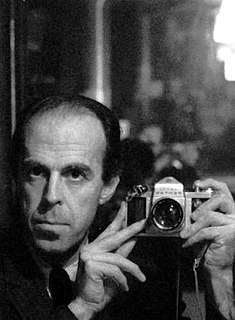A Quote by Marcus Vitruvius Pollio
Of course, we need not be surprised if artistic excellence goes unrecognized on account of being unknown; but there should be the greatest indignation when, as often, good judges are flattered by the charm of social entertainments into an approbation which is a mere a pretence.
Related Quotes
Certainly each side - the 'absolutists' and the 'constructivists' or 'humanists', as I've labelled them - accuses the other of hubris, and lays claim to humility. I see hubris on both sides: a pretence that we could ascend to an objective account of the world, on the one hand, and a pretence that we have the resources to live and act without a sense of there being something to which we answerable, on the other. So both sides are 'villains'.
Man and his deed are two distinct things. Whereas a good deed should call forth approbation and a wicked deed dis-approbation, the doer of the deed, whether good or wicked always deserves respect or pity as the case may be. Hate the sin and not the sinner is a precept which though easy enough to understand is rarely practised, and that is why the poison of hatred spreads in the world.
The desire of excellence is the necessary attribute of those who excel. We work little for a thing unless we wish for it. But we cannot of ourselves estimate the degree of our success in what we strive for; that task is left to others. With the desire for excellence comes, therefore, the desire for approbation. And this distinguishes intellectual excellence from moral excellence; for the latter has no necessity of human tribunal; it is more inclined to shrink from the public than to invite the public to be its judge.
There are many in East Asia who simply judge students on the basis of national tests. The top universities in the United States do not do that, and for good reason. We need a careful process for admissions that take all sorts of factors into account: different intellectual strengths, artistic expression, economic standing, social background, ethnicity, regional representation and designs a class as a balanced whole.
Diversity on the bench is critical. As practitioners, you need judges who 'get it!' We need judges who understand what discrimination feels like. We need judges who understand what inequality feels like. We need judges who understand the subtleties of unfair treatment and who are willing to call it out when they see it!
Often confused with shyness, introversion does not imply social reticence or discomfort. Rather than being averse to social engagement, introverts become overwhelmed by too much of it, which explains why the introvert is ready to leave a party after an hour and the extravert gains steam as the night goes on.
Rome was in the most dangerous inclination to change on account of the unequal distribution of wealth and property, those of highest rank and greatest spirit having impoverished themselves by shows, entertainments, ambition of offices, and sumptuous buildings, and the riches of the city having thus fallen into the hands of mean and low-born persons. So that there wanted but a slight impetus to set all in motion, it being in the power of every daring man to overturn a sickly commonwealth.


































